Non-pharmacological interventions for spatial neglect or inattention following stroke and other non-progressive brain injury
- PMID: 34196963
- PMCID: PMC8247630
- DOI: 10.1002/14651858.CD003586.pub4
Non-pharmacological interventions for spatial neglect or inattention following stroke and other non-progressive brain injury
Abstract
Background: People with spatial neglect after stroke or other brain injury have difficulty attending to one side of space. Various rehabilitation interventions have been used, but evidence of their benefit is unclear.
Objectives: The main objective was to determine the effects of non-pharmacological interventions for people with spatial neglect after stroke and other adult-acquired non-progressive brain injury.
Search methods: We searched the Cochrane Stroke Group Trials Register (last searched October 2020), the Cochrane Central Register of Controlled Trials (CENTRAL; last searched October 2020), MEDLINE (1966 to October 2020), Embase (1980 to October 2020), the Cumulative Index to Nursing and Allied Health Literature (CINAHL; 1983 to October 2020), and PsycINFO (1974 to October 2020). We also searched ongoing trials registers and screened reference lists.
Selection criteria: We included randomised controlled trials (RCTs) of any non-pharmacological intervention specifically aimed at spatial neglect. We excluded studies of general rehabilitation and studies with mixed participant groups, unless separate neglect data were available.
Data collection and analysis: We used standard Cochrane methods. Review authors categorised the interventions into eight broad types deemed to be applicable to clinical practice through iterative discussion: visual interventions, prism adaptation, body awareness interventions, mental function interventions, movement interventions, non-invasive brain stimulation, electrical stimulation, and acupuncture. We assessed the quality of evidence for each outcome using the GRADE approach.
Main results: We included 65 RCTs with 1951 participants, all of which included people with spatial neglect following stroke. Most studies measured outcomes using standardised neglect assessments. Fifty-one studies measured effects on ADL immediately after completion of the intervention period; only 16 reported persisting effects on ADL (our primary outcome). One study (30 participants) reported discharge destination, and one (24 participants) reported depression. No studies reported falls, balance, or quality of life. Only two studies were judged to be entirely at low risk of bias, and all were small, with fewer than 50 participants per group. We found no definitive (phase 3) clinical trials. None of the studies reported any patient or public involvement. Visual interventions versus any control: evidence is very uncertain about the effects of visual interventions for spatial neglect based on measures of persisting functional ability in ADL (2 studies, 55 participants) (standardised mean difference (SMD) -0.04, 95% confidence interval (CI) -0.57 to 0.49); measures of immediate functional ability in ADL; persisting standardised neglect assessments; and immediate neglect assessments. Prism adaptation versus any control: evidence is very uncertain about the effects of prism adaptation for spatial neglect based on measures of persisting functional ability in ADL (2 studies, 39 participants) (SMD -0.29, 95% CI -0.93 to 0.35); measures of immediate functional ability in ADL; persisting standardised neglect assessments; and immediate neglect assessments. Body awareness interventions versus any control: evidence is very uncertain about the effects of body awareness interventions for spatial neglect based on measures of persisting functional ability in ADL (5 studies, 125 participants) (SMD 0.61, 95% CI 0.24 to 0.97); measures of immediate functional ability in ADL; persisting standardised neglect assessments; immediate neglect assessments; and adverse events. Mental function interventions versus any control: we found no trials of mental function interventions for spatial neglect reporting on measures of persisting functional ability in ADL. Evidence is very uncertain about the effects of mental function interventions on spatial neglect based on measures of immediate functional ability in ADL and immediate neglect assessments. Movement interventions versus any control: we found no trials of movement interventions for spatial neglect reporting on measures of persisting functional ability in ADL. Evidence is very uncertain about the effects of body awareness interventions on spatial neglect based on measures of immediate functional ability in ADL and immediate neglect assessments. Non-invasive brain stimulation (NIBS) versus any control: evidence is very uncertain about the effects of NIBS on spatial neglect based on measures of persisting functional ability in ADL (3 studies, 92 participants) (SMD 0.35, 95% CI -0.08 to 0.77); measures of immediate functional ability in ADL; persisting standardised neglect assessments; immediate neglect assessments; and adverse events. Electrical stimulation versus any control: we found no trials of electrical stimulation for spatial neglect reporting on measures of persisting functional ability in ADL. Evidence is very uncertain about the effects of electrical stimulation on spatial neglect based on immediate neglect assessments. Acupuncture versus any control: we found no trials of acupuncture for spatial neglect reporting on measures of persisting functional ability in ADL. Evidence is very uncertain about the effects of acupuncture on spatial neglect based on measures of immediate functional ability in ADL and immediate neglect assessments.
Authors' conclusions: The effectiveness of non-pharmacological interventions for spatial neglect in improving functional ability in ADL and increasing independence remains unproven. Many strategies have been proposed to aid rehabilitation of spatial neglect, but none has yet been sufficiently researched through high-quality fully powered randomised trials to establish potential or adverse effects. As a consequence, no rehabilitation approach can be supported or refuted based on current evidence from RCTs. As recommended by a number of national clinical guidelines, clinicians should continue to provide rehabilitation for neglect that enables people to meet their rehabilitation goals. Clinicians and stroke survivors should have the opportunity, and are strongly encouraged, to participate in research. Future studies need to have appropriate high-quality methodological design, delivery, and reporting to enable appraisal and interpretation of results. Future studies also must evaluate outcomes of importance to patients, such as persisting functional ability in ADL. One way to improve the quality of research is to involve people with experience with the condition in designing and running trials.
Trial registration: ClinicalTrials.gov NCT02401724 NCT02526238 NCT02695927 NCT03141996 NCT00989430 NCT02213640 NCT02680171 NCT03168360 NCT03317860 NCT03402906 NCT03451708 NCT03458611 NCT03854487 NCT03887962 NCT04080999 NCT04227132 NCT04273620.
Copyright © 2021 The Cochrane Collaboration. Published by John Wiley & Sons, Ltd.
Conflict of interest statement
Verity Longley: none known. Christine Hazelton:
The work presented here represents the views of the authors and not necessarily those of the funding bodies.
Figures
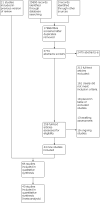
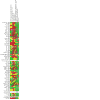
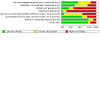

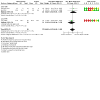
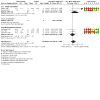
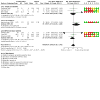
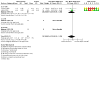

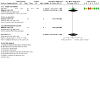
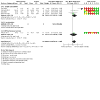
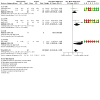
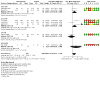
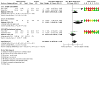


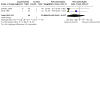
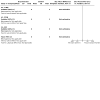

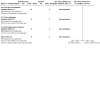

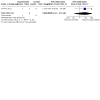

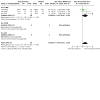
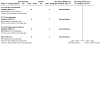

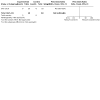
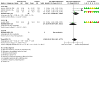
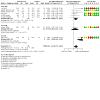



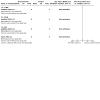
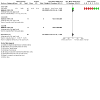
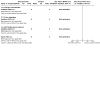

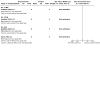
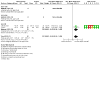

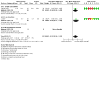
Update of
-
Cognitive rehabilitation for spatial neglect following stroke.Cochrane Database Syst Rev. 2013 Jul 1;2013(7):CD003586. doi: 10.1002/14651858.CD003586.pub3. Cochrane Database Syst Rev. 2013. Update in: Cochrane Database Syst Rev. 2021 Jul 1;7:CD003586. doi: 10.1002/14651858.CD003586.pub4. PMID: 23813503 Free PMC article. Updated.
Comment in
-
Longley et al.: Non-pharmacological interventions for spatial neglect or inattention following stroke and other non-progressive brain injury. Cochrane Database of Systematic Reviews, 2021.Neuropsychol Rehabil. 2022 Dec;32(10):2673-2678. doi: 10.1080/09602011.2021.1956977. Epub 2021 Aug 17. Neuropsychol Rehabil. 2022. PMID: 34402392 No abstract available.
References
References to studies included in this review
Aparicio‐Lopez 2016 {published data only}
-
- Aparicio-López C, García-Molina A, García-Fernández J, López-Blázquez R, Enseñat-Cantallops A, Sánchez-Carrión R, et al. Combination treatment in the rehabilitation of visuo-spatial neglect. Psicothema 2016;28(2):143–9. - PubMed
-
- Aparicio-López C, García-Molina A, García-Fernández J, Lopez-Blazquez R, Enseñat-Cantallops A, Sánchez-Carrión R, et al. Cognitive rehabilitation with right hemifield eye-patching for patients with sub-acute stroke and visuo-spatial neglect: a randomized controlled trial. Brain Injury 2015;29(4):501-7. - PubMed
Bang 2015 {published data only}
Cazzoli 2012 {published data only}
-
- Cazzoli D, Muri RM, Schumacher R, Arx S, Chaves S, Gutbrod K, et al. Theta burst stimulation reduces disability during the activities of daily living in spatial neglect. Brain 2012;135:3426–39. - PubMed
Cha 2016 {published data only}
-
- Cha HG, Kim MK. Effects of repetitive transcranial magnetic stimulation on arm function and decreasing unilateral spatial neglect in subacute stroke: a randomized controlled trial. Clinical Rehabilitation 2016;30(7):649–56. - PubMed
Cherney 2002 {published data only}
-
- Cherney LR, Halper AS, Papachronis D. Two approaches to treating unilateral neglect after right hemisphere stroke: a preliminary investigation. Topics in Stroke Rehabilitation 2003;9(4):22-33. - PubMed
Choi 2016 {published data only}
Choi 2019 {published data only}
Cottam 1987 {published data only}
-
- Cottam GL. Visual Scanning Training for Right Hemispheric Stroke Patients Exhibiting Hemispatial Neglect [Dissertation]. Oxford, Mississippi: University of Mississippi, 1987.
Dolkun 2019 {published data only}
-
- Dolkun R, Li YK, Guo H, Liu ZY. Zhishen Tiaosui acupuncture on the unilateral spatial neglect after stroke: a randomized controlled trial. Chinese Acupuncture & Moxibustion 2019;39(10):1041-5. - PubMed
Edmans 2000 {published and unpublished data}
-
- Edmans JA, Webster J, Lincoln NB. A comparison of two approaches in the treatment of perceptual problems after stroke. Clinical Rehabilitation 2000;14(3):230-43. - PubMed
Fanthome 1995 {published and unpublished data}
-
- Fanthome Y, Lincoln N, Drummond A, Walker M. The treatment of visual neglect using feedback of eye movements: a pilot study. Disability Rehabilitation 1995;17(8):413-7. - PubMed
Ferreira 2011 {published data only}
-
- Ferreira HP, Lopes MAL, Luiz RR, Cardoso L, Andre C. Is visual scanning better than mental practice in hemispatial neglect? Results from a pilot study. Topics in Stroke Rehabilitation 2011;18(2):155-61. - PubMed
Fong 2007 {published and unpublished data}
-
- Fong KNK, Chan MKL, Ng PPK, Tsang MHN, Chow KKY, Lau CWL, et al. The effect of voluntary trunk rotation and half-field eye-patching for patients with unilateral neglect in stroke: a randomized controlled trial. Clinical Rehabilitation 2007;21:729-41. - PubMed
Fong 2013 {published data only}
-
- Fong KNK, Yang NYH, Chan MKL, Chan DYL, Lau AFC, Chan DYW, et al. Combined effects of sensory cueing and limb activation on unilateral neglect in subacute left hemiplegic stroke patients: a randomized controlled pilot study. Clinical Rehabilitation 2013;27(7):628-37. - PubMed
Fu 2017 {published data only}
-
- Cao L, Fu W, Zhang Y, Huo S, Du J, Zhu L, et al. Intermittent θ burst stimulation modulates resting-state functional connectivity in the attention network and promotes behavioral recovery in patients with visual spatial neglect. NeuroReport 2016;27:1261–5. - PubMed
-
- Fu W, Cao L, Zhang Y, Huo S, Du J, Zhu L, Song W. Continuous theta-burst stimulation may improve visuospatial neglect via modulating the attention network: a randomized controlled study. Topics in Stroke Rehabilitation 2017;24(4):236-41. - PubMed
Goedert 2020 {published and unpublished data}
Iwanski 2020 {published data only}
-
- Iwanski S, Lesniak M, Polanowska K, Bembenek J, Czepiel W, Seniow J. Neuronavigated 1 Hz rTMS of the left angular gyrus combined with visuospatial therapy in post-stroke neglect. NeuroRehabilitation 2020;46:83-93. - PubMed
Kalra 1997 {published and unpublished data}
-
- Kalra L, Perez I, Gupta S, Whittink M. Effects of visual neglect on stroke rehabilitation. Proceedings of the Challenge of Stroke. The Lancet Conference; 15-16 October 1998; Geneva, Switzerland. Abstract 92.
-
- Kalra L, Perez I, Gupta S, Wittink M. The influence of visual neglect on stroke rehabilitation. Stroke 1997;28(7):1386-91. - PubMed
Karner 2019 {published data only}
-
- KarnerS, Stenner H, Spate M, Behrens J, Krakow K. Effects of a robot intervention on visuospatial hemineglect in postacute stroke patients: a randomized controlled trial. Clinical Rehabilitation 2019;33(12):1940-8. - PubMed
Katz 2005 {published data only}
-
- Katz N, Ring H, Naveh Y, Kizony R, Feintuch U, Weiss PL. Interactive virtual environment training for safe street crossing of right hemisphere stroke patients with unilateral spatial neglect. Disability and Rehabilitation 2005;27(20):1235-44. - PubMed
Kerkhoff 2012 {published data only}
-
- Kerkhoff G, Keller I, Artinger F, Hildebrandt H, Marquardt C, Reinhart S, et al. Recovery from auditory and visual neglect after optokinetic stimulation with pursuit eye movements - transient modulation and enduring treatment effects. Neuropsychologia 2012;50(6):1164-77. - PubMed
Kerkhoff 2014 {published data only}
-
- Kerkhoff G, Bucher L, Brasse M, Leonhart E, Holzgraefe M, Volzke V, et al. Smooth pursuit "bedside" training reduces disability and unawareness during the activities of daily living in neglect: a randomized controlled trial. Neurorehabilitation and Neural Repair 2014;28(6):554-63. - PubMed
Kim 2011 {published data only}
Kim 2013 {published data only}
-
- Kim BR, Chun MH, Kim DY, Lee SJ. Effect of high- and low-frequency repetitive transcranial magnetic stimulation on visuospatial neglect in patients with acute stroke: a double-blind, sham-controlled trial. Archives of Physical Medicine and Rehabilitation 2013;94(5):803-7. - PubMed
Kim 2015 {published data only}
-
- Kim YK, Jung JH, Shin SH. A comparison of the effects of repetitive transcranial magnetic stimulation (rTMS) by number of stimulation sessions on hemispatial neglect in chronic stroke patients. Experimental Brain Research 2015;233:283-9. - PubMed
Kim 2018 {published data only}
Koch 2012 {published data only}
-
- Koch G, Bonnì S, Giacobbe V, Bucchi G, Basile B, Lupo F, et al. θ-burst stimulation of the left hemisphere accelerates recovery of hemispatial neglect. Neurology 2012;78:24-30. - PubMed
Kutlay 2018 {published data only}
-
- Kutlay S, Genç A, Gök H, Öztuna D, Küçükdeveci A. Kinaesthetic ability training improves unilateral neglect and functional outcome in patients with stroke: a randomized control trial. Journal of Rehabilitation Medicine 2018;50(2):159-64. - PubMed
Learmonth 2020 {unpublished data only}
-
- Learmonth G, Benwell CSY, Märker G, Dascalu D, Checketts M, Santosh C, et al. Non-invasive brain stimulation in stroke patients (NIBS): a prospective randomized open blinded end-point (PROBE) feasibility trial using transcranial direct current stimulation (tDCS) in post-stroke hemispatial neglect. Neuropsychological Rehabilitation 2020;online:1-25. [DOI: 10.1080/09602011.2020.1767161] - DOI - PMC - PubMed
Li 2017 {published data only}
-
- Li Y, Xu J, Liu L, Li M, Lu H, Chen H, et al. Post-stroke unilateral spatial neglect treated with acupuncture and rehabilitation: a randomized controlled trial. Zhongguo Zhen Jiu 2017;37(9):913-7. - PubMed
Luukkainen‐Markkula 2009 {published and unpublished data}
-
- Luukkainen-Markkulaa R, Tarkkaa IM, Pitkanena K, Siveniusa J, Hamalainen H. Rehabilitation of hemispatial neglect: a randomized study using either arm activation or visual scanning training. Restorative Neurology and Neuroscience 2009;27:663-72. - PubMed
Machner 2012 {published and unpublished data}
-
- Machner B, Könemund I, Sprenger A, Gablentz J, Helmchen C. Randomized controlled trial on hemifield eye patching and optokinetic stimulation in acute spatial neglect. Stroke 2014;45:2465-8. - PubMed
Mancuso 2012 {published data only}
-
- Mancuso M, Pacini M, Gemignani P, Bartalini B, Agostini B, Ferroni L, et al. Clinical application of prismatic lenses in the rehabilitation of neglect patients. A randomized controlled trial. European Journal of Physical and Rehabilitation Medicine 2012;48(2):197-208. - PubMed
Mizuno 2011 {published data only}
-
- Mizuno K, Tsuji T, Takebayashi T, Fujiwara T, Hase K, Liu M. Prism adaptation therapy enhances rehabilitation of stroke patients with unilateral spatial neglect: a randomized, controlled trial. Neurorehabilitation and Neural Repair 2011;25(8):711-20. - PubMed
Nyfeller 2019 {published and unpublished data}
-
- Nyffeler TT, Vanbellingen T, Kaufmann BC, Pflugshaupt T, Bauer D, Frey J, et al. Theta burst stimulation in neglect after stroke: functional outcome and response variability origins. Brain 2019;142(4):992-1008. - PubMed
Nyfeller 2019 16c TBS {published data only}
-
- Nyffeler TT, Vanbellingen T, Kaufmann BC, Pflugshaupt T, Bauer D, Frey J, et al. Theta burst stimulation in neglect after stroke: functional outcome and response variability origins. Brain 2019;142(4):992-1008. - PubMed
Nyfeller 2019 8c TBS {published data only}
-
- Nyffeler TT, Vanbellingen T, Kaufmann BC, Pflugshaupt T, Bauer D, Frey J, et al. Theta burst stimulation in neglect after stroke: functional outcome and response variability origins. Brain 2019;142(4):992-1008. - PubMed
Nys 2008 {published data only (unpublished sought but not used)}
-
- Nys GMS, De Haan EHF, Kunneman A, De Kort PLM, Dijkerman HC. Acute neglect rehabilitation using repetitive prism adaptation: a randomized placebo-controlled trial. Restorative Neurology and Neuroscience 2008;26:1-12. - PubMed
Pandian 2014 {published data only}
Park 2015 {published data only}
Park 2015b {published data only}
Polanowska 2009 {published and unpublished data}
-
- Polanowska K, Seniówa J, Paprota E, Leśniaka M, Członkowskaa A. Left-hand somatosensory stimulation combined with visual scanning training in rehabilitation for post-stroke hemineglect: a randomised,double-blind study. Neuropsychological Rehabilitation 2009;19(3):364-82. - PubMed
Raghavan 2017 {published data only}
-
- Raghavan C. Hemispatial Neglect: An Evaluation of Novel Assessment Methods and Rehabilitation [PhD Thesis]. Oxford: University of Oxford, 2017.
Robertson 1990 {published and unpublished data}
-
- Robertson I, Gray J, Pentland B, Waite L. Microcomputer-based rehabilitation for unilateral left visual neglect: a randomised controlled trial. Archives of Physical Medicine and Rehabilitation 1990;71:663-8. - PubMed
Robertson 2002 {published data only}
-
- Robertson IH, McMillan TM, MacLeod E, Edgeworth J, Brock D. Rehabilitation by limb activation training reduces left-sided motor impairment in unilateral neglect patients: a single-blind randomised control trial. Neuropsychological Rehabilitation 2002;12(5):439-54.
Rode 2015 {published data only}
-
- Rode G, Lacour S, Jacquin-Courtois S, Pisella L, Michel C, Revol P, et al. Long-term sensorimotor and therapeutical effects of a mild regime of prism adaptation in spatial neglect. A double-blind RCT essay. Annals of Physical and Rehabilitation Medicine 2014;58:40–53. - PubMed
Rossit 2019 {published data only}
-
- Rossit S, Benwell CSY, Szymanek L, Learmonth G, McKernan-Ward L, Corrigan E, et al. Efficacy of home-based visuomotor feedback training in stroke patients with chronic hemispatial neglect. Neuropsychological Rehabilitation 2019;29(2):251-72. - PubMed
Rusconi 2002 {published data only}
-
- Rusconi ML, Meinecke C, Sbrissa P, Bernardini B. Different cognitive trainings in the rehabilitation of visuo-spatial neglect. Europa Medicophysica 2002;38:159-66.
Schroder 2008 {published data only}
-
- Schroder A, Wist ER, Homberg V. TENS and optokinetic stimulation in neglect therapy after cerebrovascular accident: a randomized controlled study. European Journal of Neurology 2008;15:922-7. - PubMed
Seniow 2016 {published data only}
-
- Seniow J, Polanowska K, Lesniak M, Czlonkowska A. Adding transcutaneous electrical nerve stimulation to visual scanning training does not enhance treatment effect on hemispatial neglect: a randomized, controlled, double-blind study. Topics in Stroke Rehabilitation 2016;23(6):377-83. - PubMed
Sesh 2018 {published data only}
-
- Sesh S. Effect of Combined Visual-Auditory-Sensory Stimulation in Hemineglect Syndrome Following Right Hemispheric Ischemic Strokes: A Randomized Control Trial [Thesis]. Thiruvananthapuram: Sree Chitra Tirunal Institute for Medical Sciences and Technology, 2018.
Song 2009 {published data only}
-
- Song W, Du B, Xu Q, Hu J, Wang M, Luo Y. Low-frequency transcranial magnetic stimulation for visual spatial neglect: a pilot study. Journal of Rehabilitation Medicine 2009;41:162-5. - PubMed
Ten‐Brink 2017 {published data only}
-
- Ten Brink AF, Visser-Meily JMA, Schut MJ, Kouwenhoven M, Eijsackers ALH, Nijboer TCW. Prism adaptation in rehabilitation? No additional effects of prism adaptation on neglect recovery in the subacute phase poststroke: a randomized controlled trial. Neurorehabilitation and Neural Repair 2017;31(12):1017-28. - PubMed
Tsang 2009 {published and unpublished data}
-
- Tsang MHM, Sze KH, Fong KNK. Occupational therapy treatment with right half-field eye-patching for patients with subacute stroke and unilateral neglect: a randomised controlled trial. Disability and Rehabilitation 2009;31(8):630-7. - PubMed
Turton 2010 {published and unpublished data}
-
- Turton AJ, O'Leary K, Gabb J, Woodward R, Gilchrist I. A single blinded randomised controlled pilot trial of prism adaptation for improving self-care in stroke patients with neglect. Neuropsychological Rehabilitation 2010;20(2):180-96. - PubMed
Van Wyk 2014 {published data only}
-
- Van Wyk A, Eksteen CA, Rheeder P. The effect of visual scanning exercises integrated into physiotherapy in patients with unilateral spatial neglect poststroke: a matched-pair randomized control trial. Neurorehabilitation and Neural Repair 2014;28(9):856-73. - PubMed
Varalta 2019 {published data only}
Vatanparasti 2019 {published data only}
-
- Vatanparasti S, Kazemnejad A, Yoonessi A, Oveisgharan S. The effect of continuous theta-burst transcranial magnetic stimulation combined with prism adaptation on the neglect recovery in stroke patients. Journal of Stroke & Cerebrovascular Diseases 2019;28(11):1-8. - PubMed
Volkening 2016 {published data only}
-
- Volkening K, Kerkhoff G, Keller I. Effects of repetitive galvanic vestibular stimulation on spatial neglect and verticality perception - a randomised sham-controlled trial. Neuropsychological Rehabilitation 2016;7:1-18. - PubMed
Welfringer 2011 {published data only}
-
- Welfringer A, Leifert-Fiebach G, Babinsky R, Brandt T. Visuomotor imagery as a new tool in the rehabilitation of neglect: a randomised controlled study of feasibility and efficacy. Disability and Rehabilitation 2011;33:2033-43. - PubMed
Wiart 1997 {published and unpublished data}
-
- Wiart L, Bon Saint Come A, Debellaix X, Petit H, Joseph PA, Mazaux JM, et al. Unilateral neglect syndrome rehabilitation by trunk rotation and scanning training. Archives of Physical Medicine and Rehabilitation 1997;78:424-9. - PubMed
Wilkinson 2014 {published data only}
Wu 2013 {published data only}
-
- Wu C-Y, Wang T-N, Chen Y-T, Lin K-C, Chen Y-A, Li H-T, et al. Effects of constraint-induced therapy combined with eye patching on functional outcomes and movement kinematics in poststroke neglect. American Journal of Occupational Therapy 2013;67:236-45. - PubMed
Yang 2015 {published data only}
-
- Yang W, Liu T-T, Song X-B, Zhang Y, Li Z-H, Cui Z-H, et al. Comparison of different stimulation parameters of repetitive transcranial magnetic stimulation for unilateral spatial neglect in stroke patients. Journal of the Neurological Sciences 2015;359:219-25. - PubMed
Yang 2015 10Hz {published data only}
-
- Yang W, Liu T-T, Song X-B, Zhang Y, Li Z-H, Cui Z-H, et al. Comparison of different stimulation parameters of repetitive transcranial magnetic stimulation for unilateral spatial neglect in stroke patients. Journal of the Neurological Sciences 2015;359:219-25. - PubMed
Yang 2015 1Hz {published data only}
-
- Yang W, Liu T-T, Song X-B, Zhang Y, Li Z-H, Cui Z-H, et al. Comparison of different stimulation parameters of repetitive transcranial magnetic stimulation for unilateral spatial neglect in stroke patients. Journal of the Neurological Sciences 2015;359:219-25. - PubMed
Yang 2015 cTBS {published data only}
-
- Yang W, Liu T-T, Song X-B, Zhang Y, Li Z-H, Cui Z-H, et al. Comparison of different stimulation parameters of repetitive transcranial magnetic stimulation for unilateral spatial neglect in stroke patients. Journal of the Neurological Sciences 2015;359:219-25. - PubMed
Yang 2017 {published data only}
-
- Yang NY, Fong KN, Li-Tsang CW, Zhou D. Effects of repetitive transcranial magnetic stimulation combined with sensory cueing on unilateral neglect in subacute patients with right hemispheric stroke: a randomized controlled study. Clinical Rehabilitation 2017;31(9):1154-63. - PubMed
-
- Zhang RG, Liu SX, Wang FY, Ma XC, Yang YH. Treatment of unilateral neglect using repetitive transcranial magnetic stimulation (rTMS) and sensory cueing (SC) in stroke patients. Journal of Sichuan University, Medical Science Edition 2017;48(2):309‐13. - PubMed
Yi 2016 {published data only}
Yi 2016 anodal {published data only}
Yi 2016 cathodal {published data only}
References to studies excluded from this review
Akinwuntan 2010 {published data only}
-
- Akinwuntan A, Devos H, Verheyden G, Baten G, Kiekens C, Feys H, et al. Retraining moderately impaired stroke survivors in driving-related visual attention skills. Topics in Stroke Rehabilitation 2010;17(5):328-36. - PubMed
Al Mahasneh 1991 {published data only}
-
- Al Mahasneh SM. Nursing Interventions to Reduce Unilateral Neglect in Right Hemisphere Stroke Patients [Dissertation]. Ann Arbor, Michigan: University of Michigan, 1991.
Angeli 2004 {published data only}
-
- Angeli V. Recovery of oculo-motor bias in neglect patients after prism adaptation. Neuropsychologia 2004;42(9):1223-34. - PubMed
Bar‐Haim 2011 {unpublished data only}
-
- Bar-Haim Erez A, Soroker N, Averbuch S. Phasic alerting combined with visual search training: a novel therapeutic approach for unilateral spatial neglect. Data on file.
Beis 1999 {published and unpublished data}
-
- Beis J-M, Andre JM, Baumgarten A, Challier B. Eye patching in unilateral spatial neglect: efficacy of two methods. Archives of Physical Medicine and Rehabilitation 1999;80:71-6. - PubMed
Butter 1992 {published data only}
-
- Butter C, Kirsch N. Combined and separate effects of eye patching and visual stimulation on unilateral neglect following stroke. Archives of Physical Medicine and Rehabilitation 1992;73:1133-9. - PubMed
Carter 1980 {published data only}
-
- Carter L, Caruso J, Languirand M, Berard M. Cognitive skill remediation in stroke and non-stroke elderly. Clinical Neuropsychology 1980;2(3):109-13.
Chen 2014 {published data only}
Cubelli 1993 {published data only}
-
- Cubelli R, Inzaghi MG, De Tanti A. The rehabilitation of unilateral spatial neglect: experimental verification of its effectiveness [La rieducazione della negligenza spaziale unilaterale: verifica sperimentale della sua efficacia]. Europa Medicophysica 1993;29:111-21.
Diller 1974 {published data only}
-
- Diller L, Ben Yishay Y, Gerstman LJ, Goodki R, Gordon W, Weinberg J. Studies in cognition and rehabilitation in hemiplegia. In: Rehabilitation Monograph No. 50. New York: New York University, 1974.
EEG‐NF 2009 {published data only}
-
- Smithard D. A novel neurofeedback-based intervention to reduce neglect and improve function in stroke patients. UK Clinical Research Network Portfolio Database, 2012 (http://public.ukcrn.org.uk/search/).
-
- Smithard D. Electroencephalogram-neurofeedback (EEG-NF) to improve neglect in stroke patients. Current Controlled Trials, 2009 (http://www.controlled-trials.com/).
Facchin 2019 {published data only}
-
- Facchin AE, Sartori CL, De Galeazzi A, Beschin N. Effect of prism adaptation on neglect hemianesthesia. Cortex 2019;113:298-311. - PubMed
Frassinetti 2002 {published data only}
-
- Frassinetti A, Angeli V, Meneghello F, Avanzi S, Ladavas E. Long-lasting amelioration of visuospatial neglect by prism adaptation. Brain 2002;125:608-23. - PubMed
Gordon 1985 {published data only}
-
- Gordon W, Hibbard M, Egelko S, Diller L. Perceptual remediation in patients with right brain damage: a comprehensive programme. Archives of Physical Medicine and Rehabilitation 1985;66:353-9. - PubMed
Harvey 2003 {published data only}
-
- Harvey M, Hood B, North A, Robertson IH. The effects of visuomotor feedback training on the recovery of hemispatial neglect symptoms: assessment of a 2-week and follow-up intervention. Neuropsychologia 2003;41:886-93. - PubMed
Harvey 2010 {published and unpublished data}
Jacquin‐Courtois 2010 {published data only}
-
- Jacquin-Courtois S, Rode G, Pavani F, O'Shea J, Giard MH, Boisson D, et al. Effect of prism adaptation on left dichotic listening deficit in neglect patients: glasses to hear better? Brain 2010;133(3):895-908. - PubMed
Kang 2009 {published data only}
-
- Kang SH, Kim DY, Seo KM, Kwang C-A, Yoo JY, Sung SY, et al. A computerized visual perception rehabilitation programme with interactive computer interface using motion tracking technology – a randomized controlled, single-blinded, pilot clinical trial study. Clinical Rehabilitation 2009;23:434-44. - PubMed
Keller 2006 {published data only}
-
- Keller I, Beer AL, Kerkhoff G. Optokinetic stimulation in visual neglect [Optokinetische stimulation bei visuellem neglect]. Neurologie und Rehabilitation 2003;9(6):272-9.
Keller 2009 {published data only}
-
- Keller I, Lefin-Rank G, Lösch J, Kerkhoff G. Combination of pursuit eye movement training with prism adaptation and arm movements in neglect therapy: a pilot study. Neurorehabilitation and Neural Repair 2009;23(1):58-66. - PubMed
Kerkhoff 2005 {unpublished data only}
-
- Kerkhoff G, Keller I, Ritter V, Marquandt C. Repetitive optokinetic stimulation induces lasting recovery from visual neglect. Restorative Neurology and Neuroscience 2006;24:357-68. - PubMed
-
- Kerkhoff G. Personal communication 2005.
Kerkhoff 2012b {published data only}
-
- Kerkhoff G, Keller I, Artinger F, Hildebrandt H, Marquardt C, Reinhart S, et al. Recovery from auditory and visual neglect after optokinetic stimulation with pursuit eye movements - transient modulation and enduring treatment effects. Neuropsychologia 2012;50(6):1164-77. - PubMed
Klos 2005 {unpublished data only}
-
- Klos T. Personal communication, 2005.
Ladavas 2013 {published data only}
-
- Ladavas E, Giulietti S, Avenanti A, Bertini C, Lorenzini E, Quinquinio C, et al. a-tDCS on the ipsilesional parietal cortex boosts the effects of prism adaptation treatment in neglect. Restorative Neurology and Neuroscience 2015;33(5):647-62. - PubMed
Lesniak 2013 {published data only}
-
- Lesniak M, Polanowska K, Seniów J. Repeated anodal tDCS coupled with cognitive training for patients with severe traumatic brain injury - a pilot RCT. Clinical Neurophysiology 2013;124(10):179-80. - PubMed
Lincoln 1985 {published data only}
-
- Lincoln N, Whiting S, Cockburn J, Bhavnani G. An evaluation of perceptual retraining. International Rehabilitation Medicine 1985;7:99-110. - PubMed
Loverro 1988 {published data only}
-
- Loverro J, Reding M. Bed orientation and rehabilitation outcome for patients with stroke hemianopsia or visual neglect. Journal of Neurologic Rehabilitation 1988;2:147-50.
Nakamura 2015 {published data only}
-
- Nakamura J, Kita Y, Ikuno K, Kojima K, Okada Y, Shomoto K. Influence of the stimulus parameters of galvanic vestibular stimulation on unilateral spatial neglect. NeuroReport 2015;26(8):462-6. - PubMed
Niemeier 1998 {published data only}
-
- Niemeier JP. The Lighthouse Strategy: use of a visual imagery technique to treat visual inattention in stroke patients. Brain Injury 1998;12(5):399-406. - PubMed
Osawa 2010 {published data only}
-
- Osawa A, Maeshima S. Family participation can improve unilateral spatial neglect in patients with acute right hemispheric stroke. European Neurology 2010;63:170-5. - PubMed
Paolucci 1996 {published and unpublished data}
-
- Antonucci G, Guariglia C, Judica A, Magnotti L, Paolucci S, Pizzamiglio L, et al. Effectiveness of neglect rehabilitation in a randomised group study. Journal of Clinical and Experimental Neuropsychology 1995;17(3):383-9. - PubMed
-
- Paolucci S, Antonucci G, Guariglia C, Magnotti L, Pizzamiglio L, Zoccolotti P. Facilitatory effect of neglect rehabilitation on the recovery of left hemiplegic stroke patients: a cross-over study. Journal of Neurology 1996;243:308-14. - PubMed
Patole 2015 {published data only}
-
- Patole RR, Kulkarni VN, Rairikar SA, Shyam AK, Sancheti PK. Effect of task specific treatment in patients with unilateral neglect. Indian Journal of Physiotherapy and Occupational Therapy 2015;9(1):74-7.
Pizzamiglio 2004 {published data only}
-
- Pizzamiglio L, Fasotti L, Jehkonen M, Antonucci G, Magnotti L, Boelen D, et al. The use of opto-kinetic stimulation in rehabilitation of the hemi-neglect disorder. Cortex 2004;40:441-50. - PubMed
Rossetti 1998 {published and unpublished data}
-
- Rossetti Y, Rode G, Pisella L, Farne A, Li L, Boisson D, et al. Prism adaptation to a rightward optical deviation rehabilitates left hemispatial neglect. Nature 1998;395(6698):166-9. - PubMed
Rossetti 2005 {unpublished data only}
-
- Rossetti Y. Personal communication, 2005.
Rossi 1990 {published data only}
-
- Rossi P, Kheyfets S, Reding M. Fresnel prisms improve visual perception in stroke patients with homonymous hemianopia or unilateral visual neglect. Neurology 1990;40:1597-9. - PubMed
Schindler 2002 {published data only}
Schmidt 2013 {published data only}
-
- Schmidt L, Keller I, Utz KS, Artinger F, Stumpf O, Kerkhoff G. Galvanic vestibular stimulation improves arm position sense in spatial neglect: a sham-stimulation-controlled study. Neurorehabilitation and Neural Repair 2013;27(6):497-506. - PubMed
Serino 2006 {published data only}
-
- Serino A, Angeli V, Frassinetti F, Ladavas E. Mechanisms underlying neglect recovery after prism adaptation. Neuropsychologia 2006;44:1068-78. - PubMed
Serino 2009 {published data only}
-
- Serino A, Barbiani M, Rinaldesi ML, Ladavas E. Effectiveness of prism adaptation in neglect rehabilitation: a controlled trial study. Stroke 2009;40:1392-8. - PubMed
Svaerke 2019 {published data only}
-
- Svaerke KW, Omkvist KV, Havsteen IB, Christensen HK. Computer-based cognitive rehabilitation in patients with visuospatial neglect or homonymous hemianopia after stroke. Journal of Stroke & Cerebrovascular Diseases 2019;28(11):1-9. - PubMed
Tham 1997 {published data only}
-
- Tham K, Tegner R. Video feedback in the rehabilitation of patients with unilateral neglect. Archives of Physical Medicine and Rehabilitation 1997;78:410-3. - PubMed
Toglia 2009 {published data only}
-
- Toglia J, Cermak SA. Dynamic assessment and prediction of learning potential in clients with unilateral neglect. American Journal of Occupational Therapy 2009;63(5):569-79. - PubMed
Trudell 2003 {published data only}
-
- Trudell C, Bodian L, Demaio JH, Cheskes BE, Reding M. Comparison of hemi-field fresnel prisms versus patching for visual neglect after stroke. Archives of Physical Medicine and Rehabilitation 2003;84:A9.
Turgut 2018 {published data only}
-
- Turgut N, Möller L, Dengler K, Steinberg K, Sprenger A, Eling P, et al. Adaptive cueing treatment of neglect in stroke patients leads to improvements in activities of daily living: a randomized controlled, crossover trial. Neurorehabilitation & Neural Repair 2018;32(11):988-98. - PubMed
Vaes 2016 {published data only}
-
- Vaes N, Nys G, Lafosse C, Dereymaeker L, Oostra K, Hemelsoet D, et al. Rehabilitation of visuospatial neglect by prism adaptation: effects of a mild treatment regime. A randomised controlled trial.. Neuropsychological Rehabilitation 2016;28(6):899-918. - PubMed
Van Kessel 2013 {published data only}
Van Os 1991 {published data only}
-
- Van Os ES, Driessen M-J, Wagenaar RC. Visual scanning training in stroke patients. Nederlands Tijdschrift voor Ergotherapie 1991;19:47-53.
Van Puymbroeck 2014 {published data only}
-
- Van Puymbroeck M, Allsop J, Miller KK, Schmid AA. Improvements in ICF components in individuals with chronic stroke following a yoga-based intervention. American Journal of Recreation Therapy 2014;95(10):24.
Webster 2001 {published data only}
-
- Webster JS, McFarland PT, Rapport LJ, Morrill B, Roades LA, Abadee PS. Computer-assisted training for improving wheelchair mobility in unilateral neglect patients. Archives of Physical Medicine and Rehabilitation 2001;82:769-75. - PubMed
Weinberg 1977 {published data only}
-
- Weinberg J, Diller L, Gordon W, Gerstman L, Lieberman A, Lakin P, et al. Visual scanning training effect on reading-related tasks in acquired right brain damage. Archives of Physical Medicine and Rehabilitation 1977;58:479-86. - PubMed
Weinberg 1979 {published data only}
-
- Weinberg J, Diller L, Gordon W, Gerstman L, Lieberman A, Lakin P, et al. Training sensory awareness and spatial organisation in people with right brain damage. Archives of Physical Medicine and Rehabilitation 1979;60:491-7. - PubMed
Weinberg 1982 {published data only}
-
- Weinberg J, Piasetsky E, Diller L, Gordon W. Treating perceptual organisation deficits in nonneglecting RBD stroke patients. Journal of Clinical Neuropsychology 1982;4(1):59-75. - PubMed
Young 1983 {published data only}
-
- Young G, Collins D, Hren M. Effect of pairing scanning training with block design training in the remediation of perceptual problems in left hemiplegics. Journal of Clinical Neuropsychology 1983;5(3):210-2. - PubMed
References to studies awaiting assessment
Cazzoli 2015 {published data only}
-
- Cazzoli D, Rosenthal CR, Kennard C, Zito GA, Hopfnere S, Muri RM, et al. Theta burst stimulation improves overt visual search in spatial neglect independently of attentional load. Cortex 2015;73:317-29. - PubMed
Chan 2013 {published data only}
-
- Chan DYK, ManDWK. Unilateral neglect in stroke: a comparative study. Topics in Geriatric Rehabilitation: 2013;29(2):126-34.
Hauer 2007 {published and unpublished data}
-
- Hauer B, Qirbach A. Unilateral neglect: prism adaptation as an economic and effective therapy? [Unilateraler Neglect: Prismenadaptation als ökonomische und effefktive Therapie?]. Zeitschrift für Neuropsychologie 2007;18(3):171-81.
Marandola 2020 {published data only}
-
- Marandola MM, Jimenez-Martin I, Rodriguez-Yanez M, Arias-Rivas S, Santamaria-Calavid M, Castillo J. Constraint-induced movement therapy in the rehabilitation of hemineglect after a stroke. Revista de Neurologia 2020;70(4):119-26. - PubMed
Park 2021 {published data only}
Saevarsson 2010 {published data only}
Toglia 2020 {published data only}
Vilimovsky 2021 {published data only}
Zigiotto 2020 {published data only}
-
- Zigiotto L, Damora A, Albini F, Casati C, Scrocco G, Mancuso M, et al. Multisensory stimulation for the rehabilitation of unilateral spatial neglect. Neuropsychological Rehabilitation 2020;online:1. - PubMed
References to ongoing studies
Elshout 2018 {published data only}
ISRCTN88395268 {published data only}http://www.isrctn.com/ISRCTN88395268
-
- ISRCTN88395268. A feasibility study for attention loss after stroke [A feasibility study of prisms and therapy in attention loss after stroke (SPATIAL feasibility)]. https://www.isrctn.com/ISRCTN88395268 (first received 8 January 2019).
Luvizutto 2017 {unpublished data only}RBR‐78jvzx
NCT00989430 {unpublished data only}
-
- NCT00989430. Prism adaptation therapy for spatial neglect [Prism adaptation therapy for spatial neglect: theoretical and practical outcomes]. https://clinicaltrials.gov/ct2/show/NCT00989430 (first received 5 October 2009).
NCT02213640 {unpublished data only}
-
- NCT02213640. Potentiation of the effects of prismatic adaptation by transcranial direct current stimulation (tDCS): evaluation of functional interest in negligence rehabilitation (PRIStiM1). https://clinicaltrials.gov/ct2/show/NCT02213640 (first received 11 August 2014).
NCT02680171 {unpublished data only}
-
- NCT02680171. Feasibility and effectiveness study of implementing prism adaptation as a treatment for spatial neglect after stroke [Feasibility and effectiveness study of implementing prism adaptation as a treatment for spatial neglect after right hemisphere stroke]. https://clinicaltrials.gov/ct2/show/NCT02680171 (first received 11 February 2016).
NCT03168360 {published data only}
-
- NCT03168360. Effect of intensive cognitive rehabilitation in subacute stroke patient. https://clinicaltrials.gov/ct2/show/NCT03168360 (first received 30 May 2017).
NCT03317860 {published data only}
-
- NCT03317860. Improving measurement and treatment of post-stroke neglect. https://clinicaltrials.gov/ct2/show/NCT03317860 (first received 23 October 2017).
NCT03402906 {published data only}
-
- NCT03402906. Family-clinician collaboration to improve neglect and rehabilitation outcome after stroke. https://clinicaltrials.gov/ct2/show/NCT03402906 (first received 18 January 2018).
NCT03451708 {published data only}
-
- NCT03451708. OKS for the treatment of hemispatial neglect [Optokinetic stimulation for the treatment of hemispatial neglect - safety and efficacy studies]. https://clinicaltrials.gov/ct2/show/NCT03451708 (first received 2 March 2018).
NCT03458611 {published data only}
-
- NCT03458611. Virtual Reality Attention Training in stroke patients (VRAT) [Virtual reality attention training in stroke patients]. https://clinicaltrials.gov/ct2/show/NCT03458611 (first received 8 March 2018).
NCT03854487 {published data only}
-
- NCT03854487. Effect of mirror therapy on unilateral neglect for patients after stroke. https://clinicaltrials.gov/ct2/show/NCT03854487 (first received 26 February 2019).
NCT03887962 {published data only}
-
- NCT03887962. Virtual environment rehabilitation for patients with motor neglect trial (VERMONT) [Trial of virtual reality biofeedback in patients with motor neglect from chronic pain or cerebrovascular disease]. https://clinicaltrials.gov/ct2/show/NCT03887962 (first received 25 March 2019).
NCT04080999 {published data only}
-
- NCT04080999. Repetitive transcranial magnetic stimulation in spatial attention after stroke (r-TMS) [Efficacy of repetitive transcranial magnetic stimulation (r-TMS) combined with conventional cognitive treatment on cognitive-behavioral symptoms of left hemispatial neglect in right-stroke patients within three months post-onset compared to conventional cognitive treatment only: a randomized controlled trial]. https://clinicaltrials.gov/ct2/show/NCT04080999 (first received 6 September 2019).
NCT04227132 {published data only}
-
- NCT04227132. Evaluation of an adaptive computerized training for rehabilitation of spatial neglect in stroke survivors (MULTITASK) [Modulation of visuospatial awareness during multi-tasking in right hemisphere stroke patients: towards novel behavioural and neurofunctional predictors of impairments and recovery of the attentional network]. https://clinicaltrials.gov/ct2/show/NCT04227132 (first received 13 January 2020).
NCT04273620 {published data only}
-
- NCT04273620. Combined optokinetic stimulation and cueing-based reading therapy to treat hemispatial neglect following stroke (OKS-READ) [Randomized controlled trial of combined optokinetic stimulation and cueing-based reading therapy to treat hemispatial neglect following stroke (OKS-READ study)]. https://clinicaltrials.gov/ct2/show/NCT04273620 (first received 18 February 2020).
NL8145 {published data only}
-
- NL8145. Modulating connectivity with non-invasive brain stimulation during spatial neglect rehabilitation. https://www.trialregister.nl/trial/8145 (first received 10 September 2019).
Olson 2020 {unpublished data only}
-
- Caloric vestibular stimulation for treatment of unilateral neglect. Ongoing study. Unknown. Contact author for more information.
Additional references
Azouvi 1996
-
- Azouvi P, Marchal F, Samuel C, Morin L, Renard C, Louis-Dreyfus A, et al. Functional consequences and awareness of unilateral neglect: study of an evaluation scale. Neuropsychological Rehabilitation 1996;6(2):133-50.
Beck 1961
-
- Beck AT, Ward CH, Mendelson M, Mock J, Erbaugh J. An inventory for measuring depression. Archives of General Psychiatry 1961;4:561-71. - PubMed
Berg 1992
-
- Berg K, Wood-Dauphine SL, Williams JL, Gayton D. Measuring balance in the elderly: validation of an instrument. Canadian Journal of Public Health 1992;S2:7-11. - PubMed
Bosma 2020
-
- Bosma MS, Nijboer TCW, Caljouw MAA, Achterberg WP. Impact of visuospatial neglect post-stroke on daily activities, participation and informal caregiver burden: a systematic review. Annals of Physical and Rehabilitation Medicine 2020;63(4):344-58. - PubMed
Bowen 2011
-
- Bowen A, Knapp P, Gillespie D, Nicolson DJ, Vail A. Non-pharmacological interventions for perceptual disorders following stroke and other adult-acquired, non-progressive brain injury. Cochrane Database of Systematic Reviews 2011, Issue 4. Art. No: CD007039. [DOI: 10.1002/14651858.CD007039.pub2] - DOI - PMC - PubMed
Bush 2006
-
- Bush JW, Kaplan RM. The quality of well-being scale (formerly the index of well-being). In: McDowell I, editors(s). Measuring Health. A Guide to Rating Scales and Questionnaires. 3rd edition. New York: Oxford University Press, 2006:675–83.
Checketts 2020
-
- Checketts M, Mancuso M, Fordell H, Chen P, Hreha K, Eskes GA, et al. Current clinical practice in the screening and diagnosis of spatial neglect post-stroke: findings from a multidisciplinary international survey. Neuropsychological Rehabilitation 2020;online:1-33. - PubMed
Cochrane Handbook
-
- Higgins JT, Green S (editors). Cochrane Handbook for Systematic Reviews of Interventions Version 5.1.0 (updated March 2011). The Cochrane Collaboration, 2011. Available from www.cochrane-handbook.org.
Collin 1988
-
- Collin C, Wade D, Davies S, Horne V. The Barthel ADL Index: a reliability study. International Disability Studies 1988;10:61-3. - PubMed
Cotoi 2018
-
- Cotoi A, Mirkowski M, Iruthayarajah J, Anderson R, Teasell R. The effect of theta-burst stimulation on unilateral spatial neglect following stroke: a systematic review. Clinical Rehabilitation 2019;33(2):183-94. - PubMed
Das Nair 2007
Duncan 1990
-
- Duncan PW, Weiner DK, Chandler J, Studenski S. Functional reach: a new clinical measure of balance. Journal of Gerontology 1990;45(6):192-7. - PubMed
Edmans 1997
-
- Edmans JA, Webster J. The Edmans ADL Index: validity and reliability. Disability and Rehabilitation 1997;19(11):465-76. - PubMed
Elsner 2020
-
- Elsner B, Kugler J, Pohl M, Mehrholz J. Transcranial direct current stimulation (tDCS) for improving activities of daily living, and physical and cognitive functioning, in people after stroke. Cochrane Database of Systematic Reviews 2020, Issue 11. Art. No: CD009645. [DOI: 10.1002/14651858.CD009645.pub4] - DOI - PMC - PubMed
Flanagan 1978
-
- Flanagan JC. A research approach to improving our quality of life. American Psychologist 1978;33:138-47.
Goldberg 1970
Graf 2008
-
- Graf C. The Lawton instrumental activities of daily living scale. American Journal of Nursing 2008;108(4):52-62. - PubMed
Guyatt 2011
-
- Guyatt G, Oxman AD, Akl EA, Kunz R, Vist G, Brozek J, et al. GRADE guidelines: 1. Introduction - GRADE evidence profiles and summary of findings tables. Journal of Clinical Epidemiology 2011;64(4):383-94. - PubMed
Hammerbeck 2019
Heilman 2003
-
- Heilman KM, Watson RT, Valenstein E. Neglect and related disorders. In: Heilman KM, Valenstein E, editors(s). Clinical Neuropsychology. 4th edition. New York: Oxford University Press, 2003:296-346.
Hill 1996
-
- Hill KD, Bernhardt J, McGann AM, Maltese D, Berkovits D. New test of dynamic standing balance for stroke patients: reliability, validity and comparison with healthy elderly. Physiotherapy Canada 1996;48(4):257-62.
Hoffman 2014
-
- Hoffmann T, Glasziou P, Boutron I, Milne R, Perera R, Moher D, et al. Better reporting of interventions: template for intervention description and replication (TIDieR) checklist and guide. BMJ 2017;348(g1687):1-12. - PubMed
Holbrook 1983
-
- Holbrook M, Skilbeck CE. An activities index for use with stroke patients. Age and Ageing 1983;12(2):166-70. - PubMed
Hou 2020
ISWP 2016
-
- Intercollegiate Stroke Working Party. National Clinical Guideline for Stroke. 5th edition. London: Royal College of Physicians, 2016.
Jehkonen 2006
-
- Jehkonen M, Laihosalo M, Kettunen JE. Impact of neglect on functional outcome after stroke: a review of methodological issues and recent research findings. Restorative Neurology and Neuroscience 2006;24:209-15. - PubMed
Katz 1963
-
- Katz S, Ford AB, Moskowitz RW, Jackson BA, Jaffe MW. Studies of illness in the aged. The index of ADL: a standardized measure of biological and psychosocial function. Journal of the American Medical Association 1963;185:914-9. - PubMed
Keith 1987
-
- Keith RA, Granger CV, Hamilton BB, Sherwin FS. The functional independence measure: a new tool for rehabilitation. Advances in Clinical Rehabilitation 1987;1:6-18. - PubMed
Kwon 2018
Lincoln 1990
-
- Lincoln NB, Edmans JA. A re-validation of the Rivermead ADL scale for elderly patients with stroke. Age and Ageing 1990;19(1):19-24. - PubMed
Lincoln 2001
Loetscher 2019
Luvizutto 2015
Müri 2013
NICE 2013
-
- National Institute for Health and Care Excellence. Stroke Rehabilitation in Adults. Clinical Guideline CG162. Manchester: NICE, 2013. - PubMed
Nijboer 2013
Nouri 1987
-
- Nouri FM, Lincoln NB. An extended activities of daily living scale for stroke patients. Clinical Rehabilitation 1987;1:301-5.
Podsiadlo 1991
-
- Podsiadlo D, Richardson S. The timed “Up & go”: a test of basic functional mobility for frail elderly persons. Journal of the American Geriatrics Society 1991;39:142-8. - PubMed
Rode 2017
-
- Rode G, Pagliari C, Huchon L, Rossetti Y, Pisella L. Semiology of neglect: an update. Annals of Physical and Rehabilitation Medicine 2017;60(3):177-85. - PubMed
Rossetti 1998
-
- Rossetti Y, Rode G, Pisella L, Farné A, Li L, Boisson D, et al. Prism adaptation to a rightward optical deviation rehabilitates left hemispatial neglect. Nature 1998;395(6698):166-9. - PubMed
Salazar 2018
-
- Salazar APS, Vaz PG, Marchese RR, Stein C, Pinto C, Pagnussat AS. Noninvasive brain stimulation improves hemispatial neglect after stroke: a systematic review and meta-analysis. Archives of Physical Medicine and Rehabilitation 2018;99(2):355-66. - PubMed
SIGN 2010
-
- Scottish Intercollegiate Guidelines Network. Sign Guideline 118. Management of patients with stroke: rehabilitation, prevention and management of complications, and discharge planning: a national clinical guideline. Edinburgh: NHS Quality Improvement Scotland, 2010.
Song 2005
-
- Song FJ, Jerosch-Herold CJ, Harvey I, Drachler M, Holland R, Mares K. Can parametric statistical methods be used to analyse and present ordinal Barthel data in trials of post-stroke interventions? In: Proceedings of the European Stroke Conference. 2005.
Towle 1991
-
- Towle D, Lincoln NB. Development of a questionnaire for detecting everyday problems in stroke patients with unilateral visual neglect. Clinical Rehabilitation 1991;5(2):135-40.
Van Bennekom 1995
-
- Van Bennekom CA, Jelles F, Lankhorst GJ. Rehabilitation Activities Profile: the ICIDH as a framework for a problem-oriented assessment method in rehabilitation medicine. Disability and Rehabilitation 1995;17(3-4):169-75. - PubMed
Wade 1985
-
- Wade D, Skilbeck C, David R, Langton-Hewer R. Stroke: A Critical Approach to Diagnosis, Treatment and Management. London: Chapman and Hall, 1985.
Ware 1992
-
- Ware JE Jr, Sherbourne CD. The MOS 36-Item Short-Form Health Survey (SF-36). I. Conceptual framework and item selection. Medical Care 1992;30:473-83. - PubMed
Wilson 1987
-
- Wilson B, Cockburn J, Halligan P. Development of a behavioral test of visuospatial neglect. Archives of Physical Medicine and Rehabilitation 1987;68:98-102. - PubMed
Wilson 2005
-
- Wilson LJT, Hareendran A, Hendry A, Potter J, Bone I, Muir KW. Reliability of the Modified Rankin Scale across multiple raters: benefits of a structured interview. Stroke 2005;36:777-81. - PubMed
Yardley 2005
-
- Yardley L, Beyer N, Hauer K. Development and initial validation of the Falls Efficacy Scale-International (FES-I). Age and Ageing 2005;34:614-9. - PubMed
Yesavage 1983
-
- Yesavage A, Brink TL, Rose TL, Lum O, Huang V, Adey M, et al. Development and validation of a geriatric depression screening scale: a preliminary report. Journal of Psychiatric Research 1983;17:37-49. - PubMed
Zigmond 1983
-
- Zigmond AS, Snaith RP. The Hospital Anxiety and Depression Scale. Acta Psychiatrica Scandinavica 1983;67:361-70. - PubMed
References to other published versions of this review
Publication types
MeSH terms
Associated data
LinkOut - more resources
Full Text Sources
Medical
Research Materials

